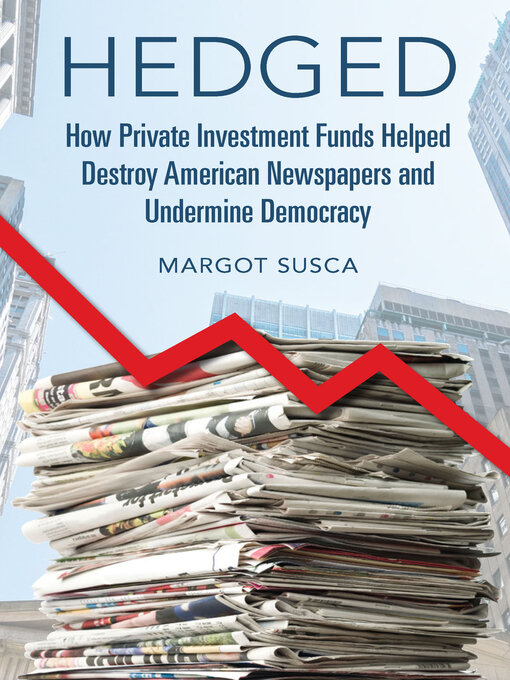The ultrawealthy largely own and guide the newspaper system in the United States. Through entities like hedge funds and private equity firms, this investor class continues to dismantle the one institution meant to give voice to average citizens in a democracy.
Margot Susca reveals the little-known history of how private investment took over the newspaper industry. Drawing on a political economy of media, Susca's analysis uses in-depth interviews and documentary evidence to examine issues surrounding ownership and power. Susca also traces the scorched-earth policies of layoffs, debt, cash-outs, and wholesale newspaper closings left behind by private investors and the effects of the devastation on the future of news and information. Throughout, Susca reveals an industry rocked less by external forces like lost ad revenue and more by ownership and management obsessed with profit and beholden to private fund interests that feel no responsibility toward journalism or the public it is meant to serve.
|AcknowledgmentsIntroduction: What Crisis
Notes
Index
|"Susca has written a valuable guide to this world of greed, unbound by any sense of mission beyond lining the pockets of wealthy investors. As we move into the post-newspaper era, it would serve all of us who care about local news and its role in fostering civic life to look back at what happened, and what is happening still." —Arts Fuse"Hedged shines a light on one of the most underdiscussed and underappreciated parts of the collapse of local news—the role of hedge funds and private equity firms. It's an important book for anyone who wants to truly understand the decline of local journalism or who wants to craft solutions."—Steven Waldman, President and cofounder of Report for America
"Timely and incisive." —Kirkus
|Margot Susca is an assistant professor in the School of Communication at American University.


